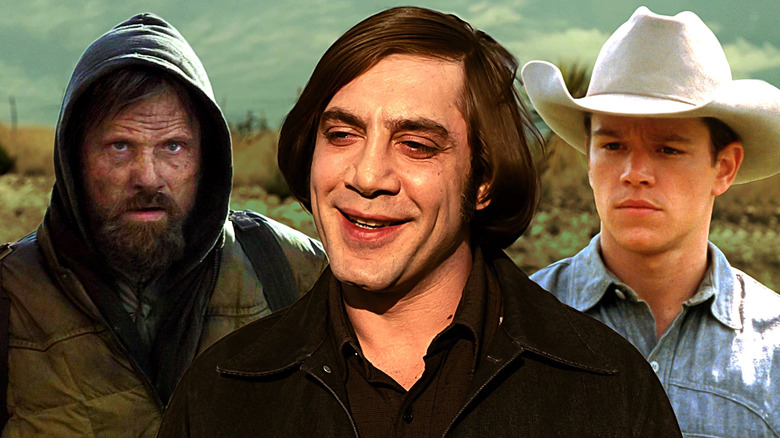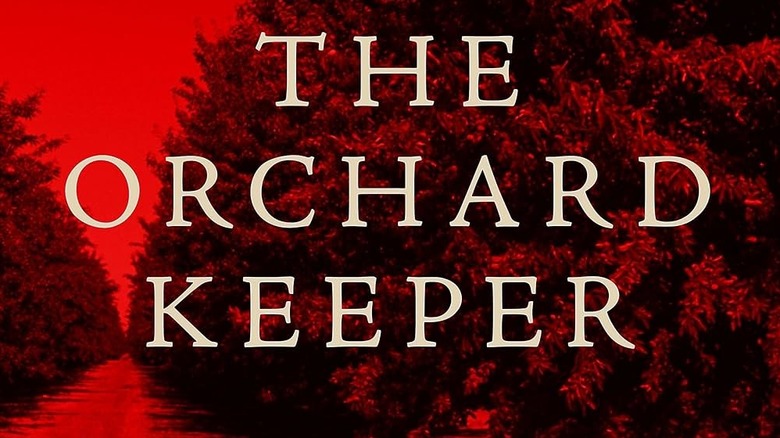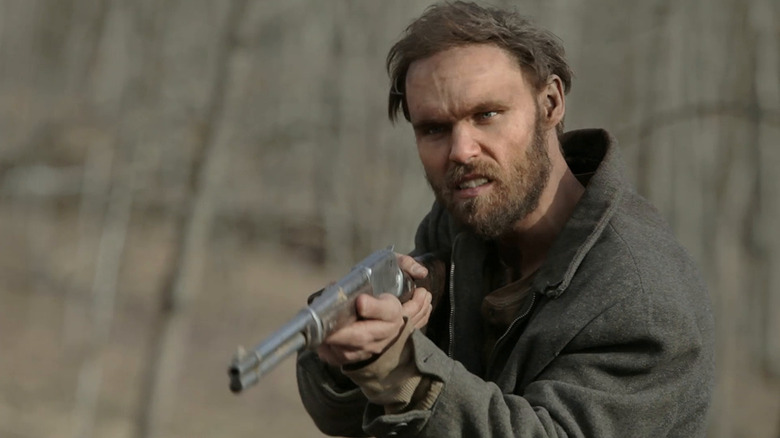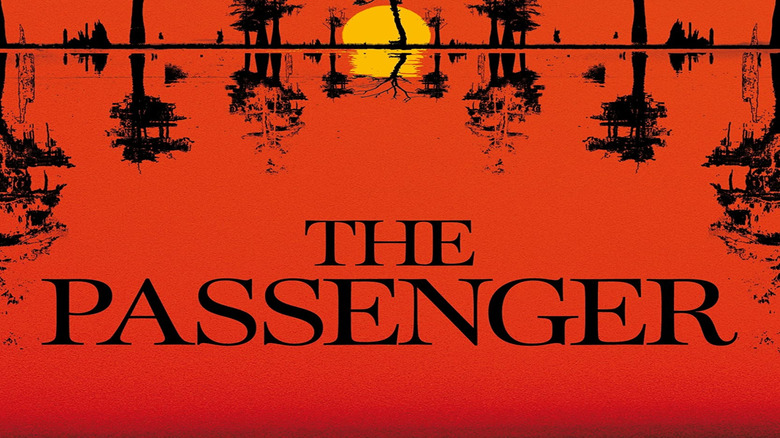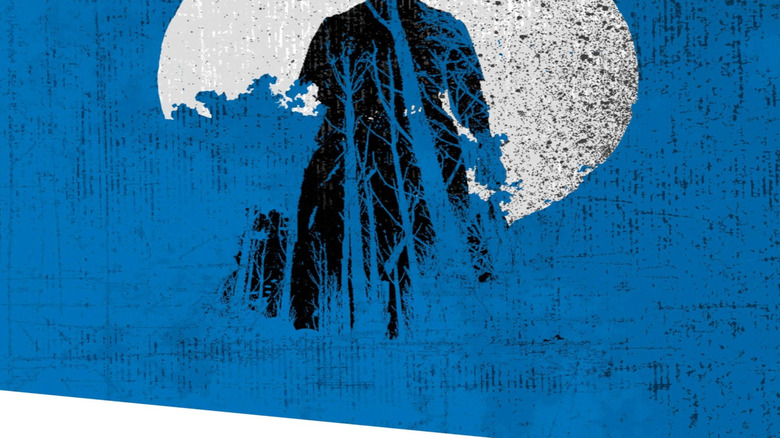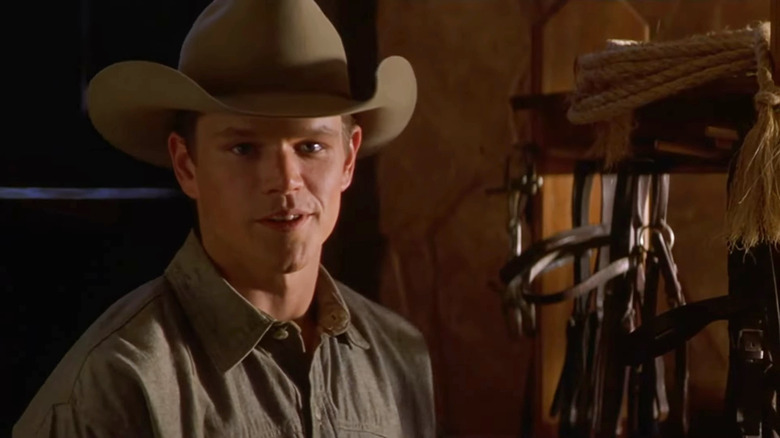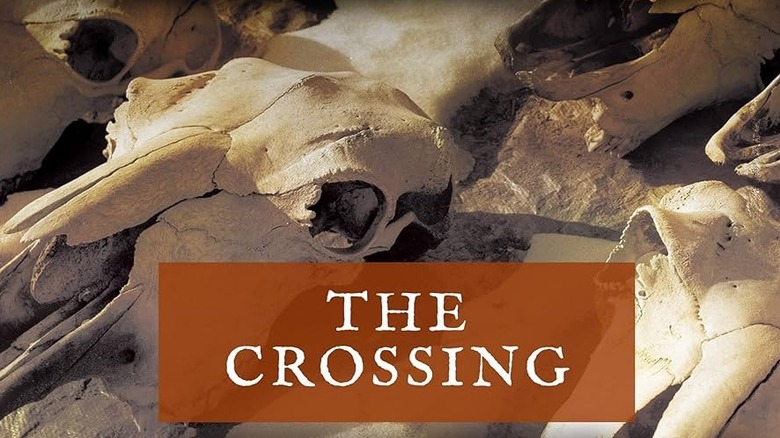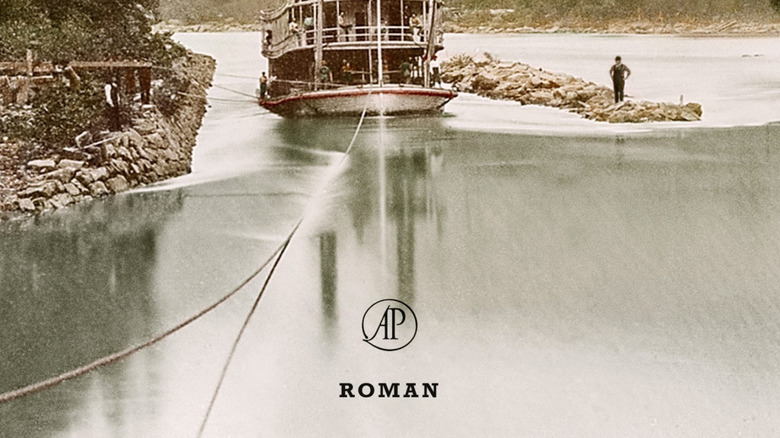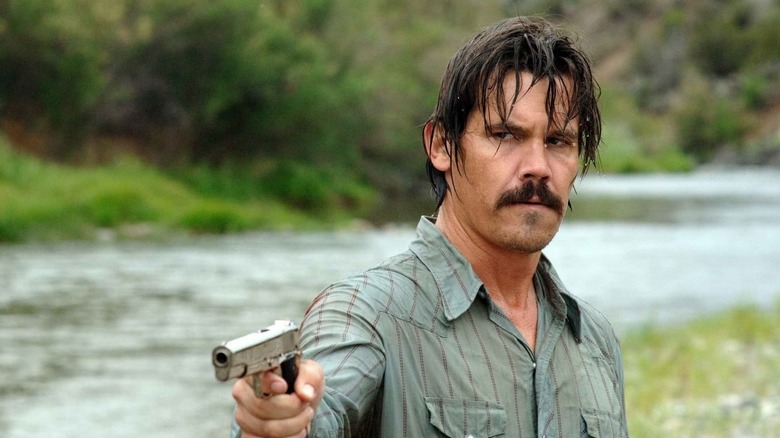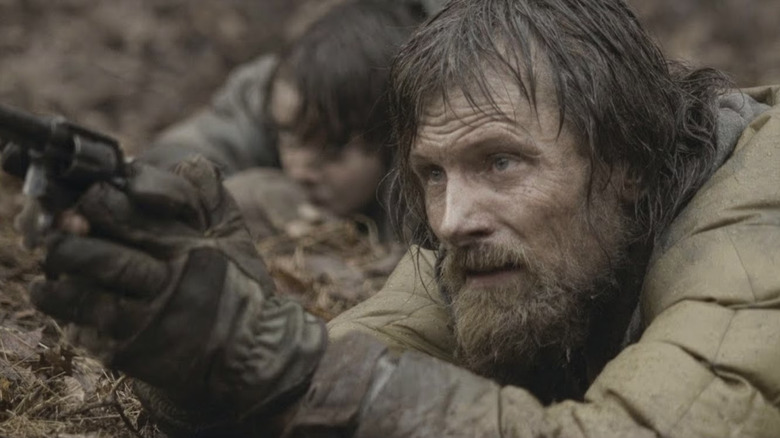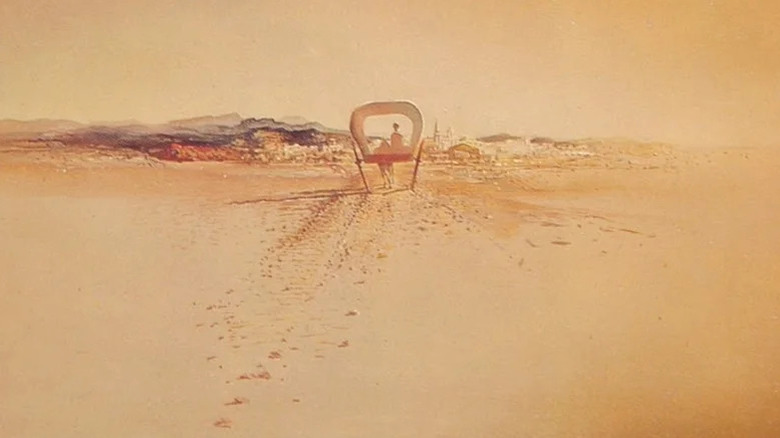All 12 Cormac McCarthy Books, Ranked From Worst To Best
We may receive a commission on purchases made from links.
The late author Cormac McCarthy may have only had a dozen novels published in his lifetime, but he left an indelible mark on literature through his work. Often marked with graphic, unflinching violence and gruff characters living on the fringes of society, McCarthy grounded his stories in dogged realism. McCarthy's protagonists were often no-nonsense figures, sometimes the villains in their own stories, whether they recognized it or not. The author painted the world as a harsh and uncaring one, with survival as an unguaranteed reward for resilience.
More than just an influential presence in the literary world, a significant portion of McCarthy's work has been adapted into film. Many of these movies have similarly earned their fair share of fans and critical acclaim, including multiple Academy Awards. Regardless of the quality of the adaptations, McCarthy's work continues to stand the test of time and remain literary classics.
Here are all 12 Cormac McCarthy books, ranked from worst to best.
The Orchard Keeper
McCarthy's 1965 debut novel, "The Orchard Keeper," is set in a remote Tennessee mountain town during Prohibition in the early 20th century. The story centers on a whiskey bootlegging operation involving smuggler Marion Sylder and hermit Arthur Ownby. Marion becomes the surrogate father to teenager John Wesley, who is unaware that Marion killed his father in self-defense during a failed attempted robbery. When the authorities discover the liquor bootlegging operation, each of the three men face the brunt of the law in their own ways.
"The Orchard Keeper" is arguably McCarthy's most challenging read, though plenty of his usual literary elements are present. The story offers no clear resolutions for its main characters, including the unrealized conflict between Marion and John, constantly subverting that expectation. Indeed, despite plenty of potential, there is no tangible conflict between the novel's main characters, just unfulfilled tension. A slice-of-life story with a dark subtext involving murder and wanton crime, "The Orchard Keeper" promised greater things from McCarthy, a promise he consistently delivered upon.
Child of God
McCarthy's third novel, 1973's "Child of God," is easily among his darkest and most sadistically disturbing given that its protagonist is a serial killer. Set in a rural Tennessee community, the story follows social pariah Lester Ballard, a man with a history of violence, after he's evicted from his home. Taking up residence in an abandoned cabin before moving to a large cave, Ballard murders several people in the surrounding area, stealing the corpses of women victims for necrophilic acts. These murders eventually attract the attention of the county sheriff and a group of locals all intent to stop Ballard and bring justice to his growing number of victims.
While McCarthy's first two novels were frequently punctuated with violence, "Child of God" is his first book where violence, more specifically repeated lethal violence against innocents, is the focal point. McCarthy's description of these vile sequences was, as typical for his writing style, matter-of-fact, with no detail left without being vividly and clearly articulated. The novel was adapted 40 years later by James Franco, with Scott Haze (pictured above) playing Ballard and the story's raw brutality very much intact. The most despicable and unsavory protagonist McCarthy ever created, Lester Ballard makes "Child of God" the most harrowing book in McCarthy's bibliography.
The Passenger
In the penultimate year of his life, McCarthy published two novels that shared a continuity, the first being 2022's "The Passenger." The novel introduces Bobby Western, a salvage diver who operates throughout the Gulf of Mexico, often basing himself out of New Orleans. Bobby is haunted by the death of his sister Alicia and his father's key role in developing the atomic bomb. After making a disturbing discovery involving a crashed plane and its missing flight records and mysterious passenger, he attracts unwanted government attention.
The real appeal to "The Passenger" isn't the cover-up and government reaction that Bobby stumbles into but Bobby himself. Bobby Western is one of McCarthy's most introspective protagonists, contemplating his own mortality and missed opportunities. Really, the government aspect of the story just serves as a way to strip Bobby of his familiar trappings, making him even more existential — another McCarthy unsolved mystery. When it comes to "The Passenger," come for the government conspiracy and stick around for the meditations on life and death.
Stella Maris
The prequel to "The Passenger," which was only published six weeks later, 2022's "Stella Maris" is the final novel completed by McCarthy prior to his death in 2023. Set approximately a decade before "The Passenger," the prequel unfolds from the perspective of Alicia Western, Bobby's gifted but deeply troubled sister. With Alicia kept within a psychiatric care facility in Wisconsin in 1972, the novel is a series of conversations between her and her psychiatrist, Dr. Cohen. These discussions gradually unveil what has been eating away at Alicia under her guarded facade.
After a career of penning masculine archetypes, McCarthy ends his work as a novelist with a much more subdued tale focused on a woman's perspective. This change of pace offers McCarthy one of his most effectively unique and complex characters, underscored by Alicia's mathematical look at the world around her. "Stella Maris" is more ponderous than "The Passenger," given its structure and premise, almost presented like a stage play. Bobby Western's story worked best when he reflected on his life, something that the story of his sister Alicia is all about.
Outer Dark
There are two narratives at the heart of McCarthy's second novel, 1968's "Outer Dark," that of incestous Appalachian siblings Culla and Rinthy Holme. After the two have a child, Culla abandons him in the wilderness and leaves his sister behind in his shame. Rinthy sets out to find her missing baby separately while Culla is pursued by three men who are aware of his guilty history. Taunting him, Culla's pursuers kill anyone with the misfortune of crossing their path as he searches desperately for safety and steady work.
Compared to the relatively straight-laced "The Orchard Keeper," McCarthy begins to weave in more fantastical elements into his stories with "Outer Dark." The trio of hunters set the antagonistic archetype for McCarthy's subsequent work: They're relentless, seemingly supernatural in their knowledge and resilience, and savage, as evidenced here by their cannibalism. But really, "Outer Dark" is an exploration of the consequence of the unthinkable sin of incest and how its two main characters react to it. Significantly more ambitious than his debut novel, McCarthy finds his general pace and tone with "Outer Dark," something he will only refine moving forward.
Cities of the Plain
Throughout the '90s, McCarthy wrote and published the Border Trilogy, a trio of novels set sharing continuity and characters along the U.S./Mexican border in the '40s and '50s. The final book in this series is 1998's "Cities of the Plain," bringing together the previous two novels' protagonists John Grady and Billy Parham. Working together as ranchers in New Mexico, the two men venture into Mexico, where John falls in love with a local sex worker. This incurs the wrath of the brothel owner, which leads to dire consequences for Billy in the aftermath.
"Cities of the Plain" is McCarthy's requiem to the modern cowboy, with John and Billy's livelihoods already at risk before they travel to Mexico. As per past entries in the Border Trilogy, this leads to graphic violence and heartbreak, but it's interesting seeing how John and Billy react to it this time around. The Border Trilogy marks McCarthy mellowing tonally in his writing, still possessing the usual bloodshed, but without overwhelming the rest of the story. And in closing out the saga of John Grady and Billy Parham, "Cities of the Plain" stands as starkly and melancholy as a eulogy.
All the Pretty Horses
The start of McCarthy's Border Trilogy, 1992's "All the Pretty Horses" introduces John Grady, a teenage rancher in Texas who relocates to Mexico after his family ranch is sold. Joined by his best friend Lacey Rawlins, Grady gets in trouble with the law before finding work at a large ranch. As Grady falls in love with the ranch owner's daughter Alejandra, his legal troubles catch up with him, leading him and Rawlins to be jailed together. This leads to an arduous fight for the two young men to survive and eventually return to Texas in one piece.
As McCarthy's first novel published in seven years, "All the Pretty Horses" demonstrates a storytelling maturity not really present in his earlier work. While there are certainly plenty of acts of violence, McCarthy really leans into exploring emotional complexity and an unorthodox coming-of-age for his protagonist John Grady. The novel was also the first work of McCarthy's adapted into a movie, directed by Billy Bob Thornton and starring Matt Damon and Penelope Cruz, and released in 2000. Reportedly heavily re-edited by Harvey Weinstein during post-production, the movie fails to capture the quiet majesty of McCarthy's original story.
The Crossing
The middle installment of McCarthy's Border Trilogy, 1994's "The Crossing," is another coming-of-age story involving American ranchers venturing into Mexico. The story is divided into three different journeys from New Mexico across the border by protagonist Billy Parham at pivotal moments in his life. The first border crossing involves an idealistic Billy bringing a captured wolf that had been terrorizing his family ranch back to its home in the Mexican mountains. The second crossing has Billy and his brother Boyd travel to track down stolen horses while the story's final border crossing has Billy go to Mexico to recover Boyd's body.
"The Crossing" builds upon the themes that McCarthy began exploring in "All the Pretty Horses," albeit without the prominent romance and a bit less violence. Every time that Billy crosses the border into Mexico, he's not only older but more cynical and world-weary with each trip. A lot of this growth takes place off-page between these voyages, but is highlighted by how Billy acts and thinks whenever he comes back into focus. A more deliberately paced tale of the end of innocence and growing in a harsh world, "The Crossing" is the standout of McCarthy's Border Trilogy.
Suttree
McCarthy drew largely from his own life experiences in writing his fourth novel, 1979's "Suttree," named for its Tennessean protagonist Cornelius Suttree. Ditching his affluent parents and leaving behind his wife and son, Suttree lives discreetly as a fisherman on the Tennessee River, supporting himself by selling catfish. Suttree encounters other offbeat characters, including trying to keep his friend Gene Harrogate out of trouble and maintaining a string of failed relationships. Along the way, Suttree overcomes his quiet existential crisis through his experiences and decision to forsake his familial privilege.
Given its premise and its change in tone from McCarthy's other work, "Suttree" is essentially McCarthy's equivalent to stories like "Adventures of Huckleberry Finn" and "On the Road." That said, it is still very much a McCarthy yarn, complete with violence, tragedy, and an unforgiving world inhabited by its misfit characters, but told from Suttree's wry perspective. This makes the novel McCarthy's funniest work, if overt humor can be associated with McCarthy's writing, but no less heartbreaking. McCarthy at his most wistful, "Suttree" feels like the breath of fresh air in between the omnipresent grim tones dominating "Child of God" and "Blood Meridian."
No Country for Old Men
The McCarthy novel to make the biggest splash on the silver screen in its adaptation yet is 2005's "No Country for Old Men," a neo-Western set near the Texas-Mexico border. Protagonist Llewelyn Moss finds the violent aftermath of a drug deal gone wrong, recovering the $2.4 million in cash that was part of the intended transaction. Moss is pursued by hitman Anton Chigurh as he seeks help from bounty hunter Carson Wells and Sheriff Ed Tom Bell while trying to get away with the money. However, Chigurh is an unstoppably evil killer in the classic McCarthy mold, shrugging off grievous injuries as he slaughters anyone that gets in his way.
"No Country for Old Men" runs lean and mean with its crime thriller premise, keeping its carnage relatively grounded, though no less frequent, compared to McCarthy's other work. The movie was notably adapted by the Coen Brothers in 2007 to critical and commercial success, maintaining the story's ponderous ending and its penchant for graphic violence. The novel is among McCarthy's more clear-cut tales, still merciless to its characters, but without the usual existential and nihilistic themes. A solid novel that begat a faithful adaptation, "No Country for Old Men" is a great gateway into the literary world of Cormac McCarthy.
The Road
There is a deep-rooted nihilism to many of McCarthy's stories and that stands prominently in full display in his 2006 post-apocalyptic novel "The Road." After an unexplained calamity causes the death of virtually all plant life on Earth, this effectively triggers the complete collapse of civilization and humanity's impending extinction. In the wake of this catastrophe, a nameless father and son travel on foot to the North American coast for a warmer climate to establish their new home. Along the way, the duo battle cannibalistic scavengers and other dangers in this deteriorating world, recovering supplies wherever they can.
Given its premise, "The Road" is obviously among McCarthy's bleakest stories, though the father-son dynamic at its core keeps it engaging. Plenty of post-apocalyptic tales, like "The Last of Us," feel at least partially influenced by the novel and its characters doing whatever it takes to survive. The book was adapted in 2009, with the main characters memorably played by Viggo Mortensen and Kodi Smit-McPhee, retaining the story's surprisingly hopeful ending. Given his style and recurring themes, McCarthy is perfectly suited for the post-apocalyptic genre, and "The Road" is clear evidence of this.
Blood Meridian
McCarthy's magnum opus is 1985's "Blood Meridian," his fifth novel and sprawling epic Western set in the mid 19th century. The novel's protagonist, referred to for the majority of the story as the kid, falls in a group with army irregulars and mercenaries along the Texas-Mexico border. Initially hired to deliver the scalps of the indigenous for a cash bounty, this roving band begins raiding and massacring entire villages for their scalps. The group is led by the enigmatic Judge Holden, with their wanton violence eventually catching up to each of them in the form of bloody retribution.
All the hallmarks of a classic Cormac McCarthy are present in "Blood Meridian": the irredeemable main characters, the unflinching violence, and the hints of magical realism in a harsh setting. But McCarthy has honed these elements to their most deeply affecting here, with no other book written by him shaking readers their core quite like this. There have been numerous attempts to adapt the 1985 novel into different media, including by McCarthy himself, but perhaps it's best left alone as a novel. In the meantime, readers should delve into McCarthy's grim exploration of unchecked expansionism and capitalism, along with his most memorable antagonist of all time.
